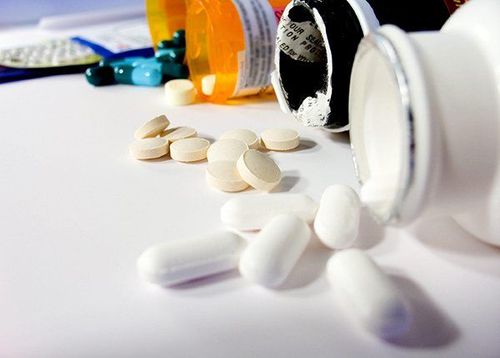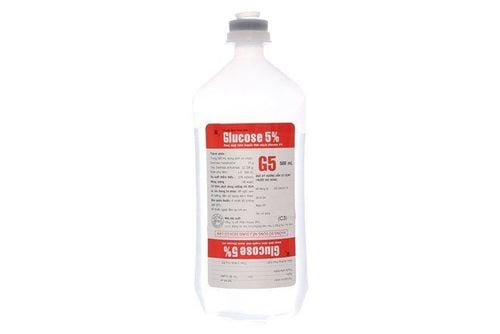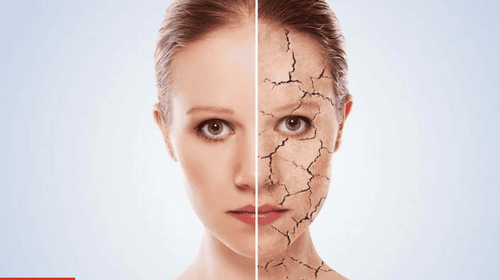This is an automatically translated article.
Water is considered as the source of life for the body. Without water, the essential organs in the body will not be able to function as they should. Dehydration can range from mild to severe. If not handled in time, severe dehydration can lead to bad health consequences, such as heat stroke, low blood pressure, and even death.
1. What is dehydration?
Normally, water will make up about 75-80% of the body. Each individual's water needs are different. In general, an adult needs an average of 2 liters of water per day.
Through daily activities, including movement, sweat, saliva, tears, urination, a certain amount of water is lost in the body. Therefore, you need to replace this lost water through eating.
Dehydration is a condition that occurs when our body does not have the necessary amount of water. If the body doesn't get enough water, it won't be able to function as it should. Dehydration often manifests in varying degrees, including mild, moderate, and severe. This also depends on how much fluid the body is lacking.

Khi có dấu hiệu mất nước, bạn cần bổ sung nước ngay lập tức
2. Causes of dehydration
Your body loses water on a daily basis can result from many different causes, such as sweating, urinating, defecating, through saliva (spit) or tears. Usually, the lost fluids are replaced and replenished with fluids from water or other watery foods. If your body loses too much water, or you don't drink enough water, dehydration will occur.
A number of other causes can also cause you to become dehydrated , including:
Diarrhea or vomiting: Can lead to rapid dehydration in a short period of time. These are also the leading factors leading to death from dehydration, especially in children and the elderly. A fever: The higher the fever, the faster the body loses water. Sweating: The performance of certain physical activities, especially outdoor activities, accompanied by hot environmental conditions (eg. summer days) can cause your body to lose a significant amount of water. Frequent urination: This can be caused by certain medical conditions, such as diabetes, or by the use of water pills (such as diuretics). This causes you to increase the frequency of urination and can lead to dehydration. Some other familiar causes can also lead to dehydration, including:
You are too busy and forget to drink enough water You do not realize you are thirsty You do not want to drink water because you have a sore mouth, sore throat or stomach disease.
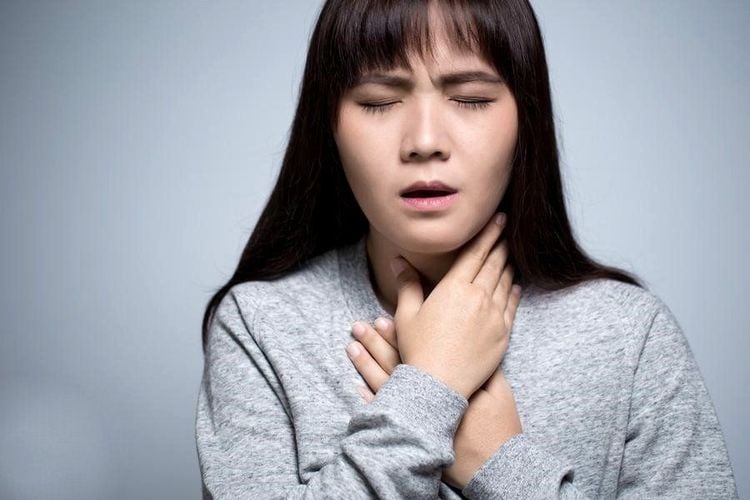
Đau họng có thể khiến bạn không muốn uống nước và gây mất nước
3. Common Symptoms of Dehydration
When your body is mild to moderate dehydration will show some common signs:
Thirstness Decreased frequency of urination Dry mouth and tongue Dark yellow urine Dry skin Cramps muscles Headache When you are severely dehydrated, you will have the following symptoms:
Not urinating, or the urine is dark yellow Feeling dizzy Very dry skin Rapid breathing Rapid heart palpitations Sunken eyes Fainting Lack of energy, often feeling sleepy Confusion Confusion Irritability In general, the symptoms of dehydration in infants and young children are different from those of adults, including:
A swollen tongue and mouth dry Crying without tears Dry diapers every 3 hours Sunken eyes and cheeks Child irritable, drowsy and lack of energy As can be seen, severe dehydration is a medical emergency and needs immediate treatment immediately to avoid unfortunate risks to your health.
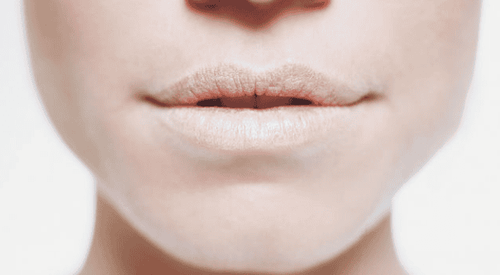
Da khô là một biểu hiện của mất nước
4. Subjects at high risk of dehydration
Actually, anyone is at risk of becoming dehydrated, but the following groups of people are at a higher risk of dehydration than others. Specifically:
Infants and young children: These are the populations most at risk for severe vomiting and diarrhea. The most common cause of dehydration in children is a high fever. On the other hand, children are too young to realize that they are thirsty or get a drink on their own. The elderly: This is also one of the subjects that are easily dehydrated because they often do not realize they are thirsty. Furthermore, older adults often have certain difficulties with walking, so they may not be able to drink water easily, or may not be able to stay hydrated due to medical conditions. People with Chronic Diseases: Type 2 diabetes in particular can cause a patient to have to urinate frequently if the disease is not effectively controlled. In addition, people with chronic diseases may have to use diuretics to have more frequent bowel movements, which also contributes to a significant amount of water loss from their bodies. People with sore throat or cold : This health condition can prevent them from wanting to eat and drink as usual. People who are often active outdoors: When exercising under hot weather conditions, sometimes the body does not cool down effectively because the gyrus tissue cannot evaporate completely. This can cause your body temperature to rise higher and require more rehydration.

Trẻ sơ sinh bị tiaau chảy rất dễ bị mất nước
5. How seriously does dehydration affect the body?
When dehydration is not handled in time, it can lead to many serious consequences for the body, including:
Kidney-related diseases: If the body is dehydrated for a long time, it will increases the risk of kidney stone formation, urinary tract infections, and even kidney failure. Hypovolemic shock: This is one of the most severe, severe effects that dehydration has on the body. It can be life-threatening if not treated promptly. Dehydration can reduce the volume of fluid circulating in the blood vessels, which in turn lowers blood pressure. At that time, the amount of oxygen and nutrients is not sufficiently supplied to the body's essential organs to maintain normal functioning. Heat damage: Can cause cramps (mild level), even heat shock is extremely dangerous to life. Seizures: Dehydration can upset the body's balance of electrolytes, such as potassium and sodium. It also disrupts the signaling process between cells in the body, leading to involuntary muscle contractions or loss of consciousness.
6. What should you do to prevent dehydration?
To prevent the risk of severe dehydration as well as its effects on the body, you can follow some of the following measures:
Drink enough water, add foods containing Lots of water, especially on hot summer days, it's easy to lose water. In addition, you should not wait until you feel thirsty to drink. Ideally, you should drink water regularly in small sips if you cannot drink a lot of water at once. In a slightly chilly weather, warm water will be a suitable choice for you. In case you have vomiting or diarrhea, drink more water than usual to make up for the lost fluid. When it gets cold, you should also pay attention to replenish water regularly because dry air can dehydrate your body through moisture. If your job is often outdoors, or you have to do hard work that takes a lot of strength and sweat, you should try to drink water before and during work. The body will be sufficiently hydrated when you notice that the urine is clear and yellow in color. Elderly people with mild medical conditions, such as bronchitis, the flu, or bladder infections, should also drink more water than usual, even though symptoms of dehydration are not yet apparent. body.
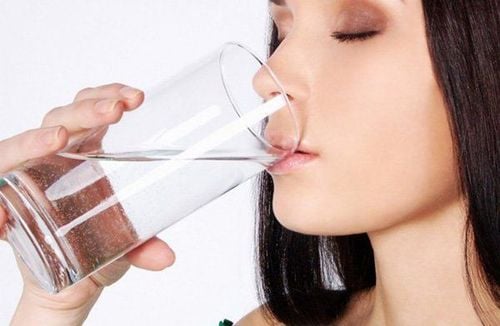
Bạn cần bổ sung đủ nước cho cơ thể mỗi ngày
Dehydration is a very common condition and there is a risk of serious complications if not handled in time, so patients need to go to a reputable hospital to conduct examination and treatment as soon as signs appear. of dehydration. Currently, Vinmec International General Hospital is one of the leading prestigious hospitals in the country, trusted by a large number of patients for medical examination and treatment. Not only the physical system, modern equipment: 6 ultrasound rooms, 4 DR X-ray rooms (1 full-axis machine, 1 light machine, 1 general machine and 1 mammography machine) , 2 DR portable X-ray machines, 2 multi-row CT scanner rooms (1 128 rows and 1 16 arrays), 2 Magnetic resonance imaging rooms (1 3 Tesla and 1 1.5 Tesla), 1 room for 2 levels of interventional angiography and 1 room to measure bone mineral density.... Vinmec is also the place to gather a team of experienced doctors and nurses who will greatly assist in diagnosis and detection. early signs of abnormality in the patient's body. In particular, with a space designed according to 5-star hotel standards, Vinmec ensures to bring the patient the most comfort, friendliness and peace of mind.
Please dial HOTLINE for more information or register for an appointment HERE. Download MyVinmec app to make appointments faster and to manage your bookings easily.
Reference source: webmd.com




